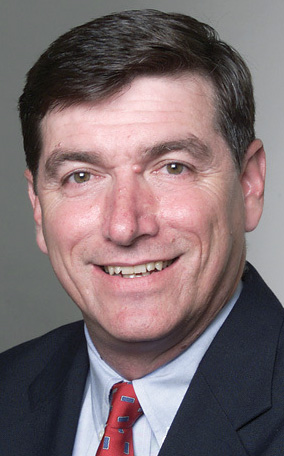

 Vint Cerf has posted comments in support of the pending sale of PIR and the .org registry to Ethos Capital. Vint's Comments . Vint is a respected member of the Internet community, and his comments need close attention and careful assessment. Some of his comments have been discussed here earlier. Other comments, posted here and elsewhere, have either supported the sale or raised questions.
Vint Cerf has posted comments in support of the pending sale of PIR and the .org registry to Ethos Capital. Vint's Comments . Vint is a respected member of the Internet community, and his comments need close attention and careful assessment. Some of his comments have been discussed here earlier. Other comments, posted here and elsewhere, have either supported the sale or raised questions.
 ICANN's Board will meet soon, perhaps even tomorrow, to discuss the dot-org domain sale. It is a pivotal inflection point in the history of Internet governance. When Internet Society (ISOC) was awarded the dot-org domain over ten other bids in 2002, evaluators voiced concerns about their ability to steward it. The report explains: Some on the Committee expressed concern, however, that ISOC's associations extend only to the networking/connectivity community and not to a broader base...
ICANN's Board will meet soon, perhaps even tomorrow, to discuss the dot-org domain sale. It is a pivotal inflection point in the history of Internet governance. When Internet Society (ISOC) was awarded the dot-org domain over ten other bids in 2002, evaluators voiced concerns about their ability to steward it. The report explains: Some on the Committee expressed concern, however, that ISOC's associations extend only to the networking/connectivity community and not to a broader base...
 I watch the controversy over the proposed sale of the .ORG domain with a mixture of bemusement and concern. Some in the ICANN community – mostly those who resent that the Internet ever became commercialized – oppose the sale of the Public Interest Registry to the for-profit company Ethos for $1.1 billion. The basis of their concern is that the domain for non-profits should be in the hands of a non-profit and that the new owners might increase the current $9.93 fee PIR charges for a domain.
I watch the controversy over the proposed sale of the .ORG domain with a mixture of bemusement and concern. Some in the ICANN community – mostly those who resent that the Internet ever became commercialized – oppose the sale of the Public Interest Registry to the for-profit company Ethos for $1.1 billion. The basis of their concern is that the domain for non-profits should be in the hands of a non-profit and that the new owners might increase the current $9.93 fee PIR charges for a domain.
 The beginning of a new decade is always an invitation to have a broader look into the future. What, in the next ten years, will happen in the Internet Governance Ecosystem? Will the 2020s see the usual swinging pendulum between more liberal and more restrictive Internet policies in an interconnected world? Or will we move towards a watershed?
The beginning of a new decade is always an invitation to have a broader look into the future. What, in the next ten years, will happen in the Internet Governance Ecosystem? Will the 2020s see the usual swinging pendulum between more liberal and more restrictive Internet policies in an interconnected world? Or will we move towards a watershed?
 Digital governance, like all governance, needs to be founded in guiding principles from which all policy making is derived. There are no more fundamental principles to guide our policy making than the Universal Declaration of Human Rights, (UDHR). This article is Part 2 of a series of articles exploring the application of the UDHR to rights issues in the cyberspaces of the Internet ecosystem. The previous article in the series explores the foundations of the UDHR.
Digital governance, like all governance, needs to be founded in guiding principles from which all policy making is derived. There are no more fundamental principles to guide our policy making than the Universal Declaration of Human Rights, (UDHR). This article is Part 2 of a series of articles exploring the application of the UDHR to rights issues in the cyberspaces of the Internet ecosystem. The previous article in the series explores the foundations of the UDHR.
 The .ORG sale has placed Maureen Hilyard – ICANN's At-large Chair – squarely between the largest outpouring of individual user sentiment that the Internet community has ever seen, and the people who can do something about it. For At-large, the stakes are high. ICANN has spent years building up a user organization to balance corporate and government interests. At-large could be a key bulwark against the capture of Internet resources by those with capital and political power.
The .ORG sale has placed Maureen Hilyard – ICANN's At-large Chair – squarely between the largest outpouring of individual user sentiment that the Internet community has ever seen, and the people who can do something about it. For At-large, the stakes are high. ICANN has spent years building up a user organization to balance corporate and government interests. At-large could be a key bulwark against the capture of Internet resources by those with capital and political power.
 There is currently a brewing controversy over the allocation of various radio frequencies for 5G that could have a negative impact on weather forecasting. Weather forecasting has become extremely sophisticated and relies on masses of data gathered from weather satellites and other data-gathering devices. The masses of data, along with modern supercomputers and data center computing, have significantly improved the ability to predict future weather.
There is currently a brewing controversy over the allocation of various radio frequencies for 5G that could have a negative impact on weather forecasting. Weather forecasting has become extremely sophisticated and relies on masses of data gathered from weather satellites and other data-gathering devices. The masses of data, along with modern supercomputers and data center computing, have significantly improved the ability to predict future weather.
 There is already a growing shortage of fiber resources that includes engineers, construction companies, and fiber consultants. The upcoming $16.4 billion RDOF program will create a resource shortage in 2020 for those who can help companies seek grant funding. Once the grants are awarded, the size of the program will add stress to the resources needed to build networks. Companies that don't line up their experts early might find themselves without help.
There is already a growing shortage of fiber resources that includes engineers, construction companies, and fiber consultants. The upcoming $16.4 billion RDOF program will create a resource shortage in 2020 for those who can help companies seek grant funding. Once the grants are awarded, the size of the program will add stress to the resources needed to build networks. Companies that don't line up their experts early might find themselves without help.
 And so it goes, we are coming to the end of 2019, and that can mean only one thing. It's time for another Domain Name Year in Review. And unlike years past, this year was a real doozy. So without further ado, here are the domain name industry's top 10 biggest stories for 2019... To date, 48 leading registries and registrars have signed onto the "Framework to Address Abuse." The initiative was launched in November 2019, just prior to the ICANN meeting in Montreal.
And so it goes, we are coming to the end of 2019, and that can mean only one thing. It's time for another Domain Name Year in Review. And unlike years past, this year was a real doozy. So without further ado, here are the domain name industry's top 10 biggest stories for 2019... To date, 48 leading registries and registrars have signed onto the "Framework to Address Abuse." The initiative was launched in November 2019, just prior to the ICANN meeting in Montreal.
 The early designers of the Internet quickly realized that as the number of domain names flourished, there was a need for tracking domain name owners to resolve questions and conflicts that might arise. To that end, they created WHOIS, a public database with the names, phone numbers, email addresses, and mailing addresses of registered domain owners and operators.
The early designers of the Internet quickly realized that as the number of domain names flourished, there was a need for tracking domain name owners to resolve questions and conflicts that might arise. To that end, they created WHOIS, a public database with the names, phone numbers, email addresses, and mailing addresses of registered domain owners and operators.